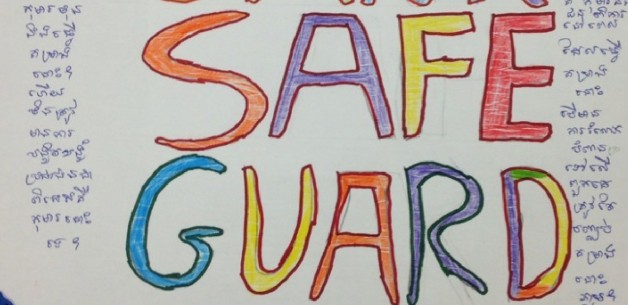Child rights organizations express disappointment over poorly managed consultation in Tanzania
On November 4th 2014, the World Bank held a consultation in Tanzania to seek feedback on the content of the first draft of its updated safeguard policies. Several child rights organizations expressed serious concerns about the process leading up to the consultation, including the poor preparation and registration process, as well as the lack of agenda and defensive posturing by Bank staff during the consultation. The Bank’s consultation process—which includes dozens of consultations around the world—is perceived by many civil society organizations as an opportunity to convey concerns and make recommendations for the new safeguards. The Bank should therefore ensure that future consultations are better organized and conducted if they hope to obtain meaningful feedback from stakeholders on the updated safeguard policies.
Although many of the child rights organizations that attended recently sent a letter to the Bank praising it for including protections for children in the updated safeguards, the letter also expressed serious concerns and reservations regarding the new policies and endorsing organizations from Tanzania hoped to use the consultation to share their thoughts on the draft. Unfortunately, participants at the consultation in Tanzania felt their views were not heard by the Bank team present and that their participation was not taken seriously. According to participants, the registration process and preparation for the consultation lacked transparency and was unnecessarily difficult. Some CSOs were told that the registration process was closed, yet they had sent their reservation emails prior to the closing date. No project affected people were invited to attend the meeting. The information on the consultation, including the venue, was also completely inadequate. Two days before the meeting some CSOs had not even received their invites, and the information for discussion—including the draft safeguards framework itself—was only provided on the day of the meeting, which meant that the participants had very little time to prepare feedback.
Participants described the consultation itself as poorly managed by the World Bank team. They described the meeting as an open floor discussion with no agenda to guide them. As a result, the discussion hurdled from one point to another without concrete action points. Dialogue was made even more challenging by the fact that the Bank staff presiding over the consultation did not reflect the diversity of expertise or experience represented by the civil society participants, which included ten child rights organizations, as well as representatives from other sectors including forestry, animal conservation, land, disability, and women’s rights. On the other hand, the World Bank panelists were mainly comprised of environmentalists who paid little attention to other concerns—including child rights—and thus ended up being defensive rather than listening when those issues were raised.
On the issue of child rights, the World Bank panelists focused their presentation primarily on child labor, defending the current terms in the draft that sets the minimum age based on national law as opposed to setting the minimum age in line with ILO convention 138, as civil society representatives suggested. CSOs also felt the panel was not receptive to discussing child rights beyond child labor, such as issues related to participation, protection, best interests of the child, growth, survival or development. A participant representing Child Rights Forum Tanzania emphasized that the safeguards did not give due weight to child rights issues even though in many places where World Bank projects are implemented, more than 50% of the population are children. Another child rights CSO representative, from the organization C-Sema, added that the inclusion of issues related to children and how to protect them was limited. Some child rights groups that attended the consultation expressed to the Bank that they rejected the draft entirely because it does not adequately address child rights, needs and concerns. The draft, they felt, was totally inadequate when compared with the Convention on the Rights of the Child, which nearly all borrowing countries have ratified.
The concerns raised by child rights organizations with regard to the Tanzania consultation echo the concerns expressed by many other organizations that recently signed an open letter to the Bank, coordinated by the Bank on Human Rights coalition. For future consultations to be effective, the World Bank must provide adequate time for participants to prepare and to be informed of the agenda in accordance with its own policy (which recommends four weeks for invitations and information sharing). In addition, the World Bank selection process on who is to attend should be more transparent and the panel should be more diversified. Most importantly, the World Bank should be ready to listen and seriously consider external views.

